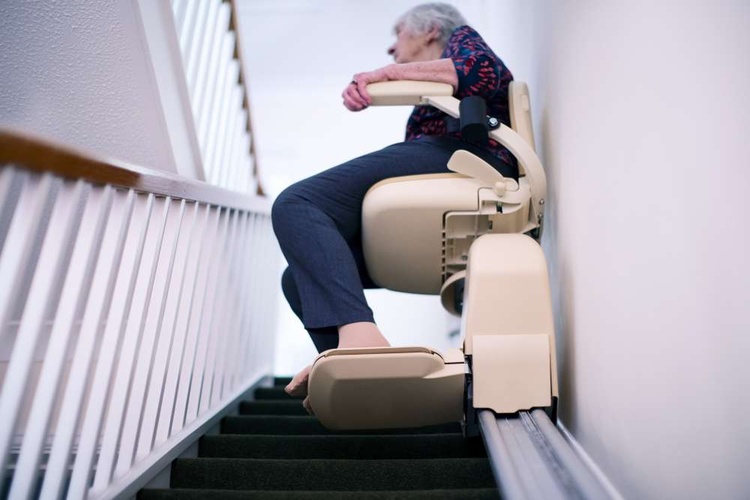Beyond Movement: Mobility Services for the Elderly and Mental Health Benefits
Research suggests that improving physical mobility through Mobility Services for Elderly can directly and significantly improve the mental health of older adults. This article explores the link between accessibility, social engagement facilitated by scooters, and a reduction in isolation, offering a holistic view of senior wellness and device efficacy.

Mobility scooters represent a transformative technology for elderly individuals facing mobility challenges. While their primary function is to facilitate physical movement, their impact extends far deeper into the psychological and social wellbeing of users. For many seniors, these devices restore independence and provide access to activities, relationships, and experiences that would otherwise remain out of reach. The comprehensive benefits of mobility services encompass not just transportation but a holistic approach to enhancing quality of life for older adults.
The Strong Link Between Mobility and Reduced Isolation
Social isolation represents one of the most significant health risks for elderly populations, often leading to depression, cognitive decline, and various physical health complications. Mobility services directly address this challenge by enabling seniors to maintain social connections despite physical limitations. Research shows that elderly individuals with access to mobility scooters are significantly more likely to participate in community activities, visit friends and family, and maintain regular social engagements.
The ability to travel independently to social gatherings, religious services, and recreational activities helps preserve meaningful relationships that might otherwise deteriorate due to mobility constraints. This independence creates a sense of autonomy that proves vital for mental wellbeing. Mobility service providers who offer comprehensive support—including personalized device selection, fitting, and maintenance—further enhance this benefit by ensuring seniors can reliably access their communities without fear of technical difficulties or breakdowns.
Scooter Use and Increased Social Engagement in Older Populations
The correlation between mobility scooter use and enhanced social participation is well-documented. Studies show that seniors who begin using mobility scooters typically experience a marked increase in their social activities within the first six months. This increase isn’t merely quantitative but qualitative—users report more meaningful interactions and greater satisfaction with their social lives.
Community centers, shopping areas, parks, and family gatherings become accessible again, allowing older adults to maintain their social identities and roles. For many, this renewed access to social spaces counteracts feelings of marginalization that often accompany mobility limitations. The psychological benefit extends beyond the actual social interaction to include the anticipation and planning of outings, which provides cognitive stimulation and a sense of purpose.
The Role of Services in Device Training and Accessibility
The effectiveness of mobility scooters depends significantly on proper training and ongoing support services. Comprehensive mobility services include initial assessment, personalized device selection, and thorough training programs that ensure users can safely navigate various environments. This training builds confidence and maximizes the potential benefits of the technology.
Many mobility service providers now offer specialized programs designed to help users overcome specific challenges, such as navigating public transportation, handling different terrain types, or managing the scooter in crowded spaces. These targeted training services significantly expand the range of activities accessible to users. Additionally, maintenance and repair services ensure continued accessibility by minimizing downtime and extending device lifespan.
Accessibility consulting represents another valuable component of comprehensive mobility services. These consultations help identify and address environmental barriers in users’ homes and frequently visited locations, further expanding the range of accessible activities and spaces.
Evidence Showing Physical Activity Improves Mental Health in Older Adults
While mobility scooters provide assistance with movement, they paradoxically can increase overall physical activity levels in elderly users. By conserving energy during transportation, seniors often have more capacity for meaningful physical activities upon reaching their destinations. Research indicates that this selective energy expenditure strategy leads to more varied and purposeful physical engagement.
Studies consistently demonstrate that even modest increases in physical activity significantly benefit mental health in older adults. Regular movement—even when partially assisted—helps maintain cognitive function, reduces anxiety and depression symptoms, and improves sleep quality. The independence provided by mobility scooters often encourages users to participate in gentle exercise programs, therapeutic activities, and rehabilitation sessions they might otherwise avoid due to fatigue from transportation.
This relationship between assisted mobility and increased overall activity challenges the misconception that mobility aids promote sedentary behavior. Instead, properly prescribed and utilized mobility scooters typically facilitate a more active lifestyle overall, with corresponding mental health benefits.
Non-Physical Benefits of Assistive Technology on Overall Well-Being
The psychological impact of mobility scooters extends well beyond their practical transportation function. For many seniors, these devices represent reclaimed independence and dignity—fundamental components of psychological wellbeing that often diminish with age-related mobility challenges. Users frequently report improved self-esteem, reduced feelings of being burdensome to others, and enhanced sense of personal agency.
Cognitive benefits also emerge from the increased environmental stimulation that mobility provides. Regular exposure to varied environments, new experiences, and diverse social interactions helps maintain cognitive function and may even slow cognitive decline. The mental engagement required to navigate environments using a mobility scooter provides valuable cognitive exercise.
Perhaps most significantly, mobility services contribute to an improved sense of identity continuity. By enabling continued participation in long-valued activities and roles—whether as a grandparent, community volunteer, hobbyist, or friend—mobility scooters help preserve the sense of self that can become threatened by physical limitations.
The psychological security of knowing help is available through comprehensive mobility services also reduces anxiety about potential problems or emergencies. Many providers now offer emergency response systems, regular maintenance checks, and 24/7 support that provide peace of mind for both users and their families.
Comprehensive Mobility Service Providers and Features
Mobility services vary significantly in their comprehensiveness and approach to supporting elderly users. Understanding the available options helps seniors select services that address both physical and mental wellbeing needs.
| Provider Type | Services Offered | Key Mental Health Benefits |
|---|---|---|
| Full-Service Mobility Centers | Assessment, fitting, training, maintenance, home modifications | Comprehensive support reduces anxiety and builds confidence |
| Healthcare-Integrated Providers | Medical assessment, therapy coordination, insurance navigation | Holistic approach addresses physical and mental health together |
| Community-Based Services | Group training, social outings, peer support networks | Enhanced social connection and community integration |
| Mobile Service Providers | In-home assessment, delivery, on-site maintenance | Reduces logistical barriers to obtaining and maintaining devices |
| Rental Programs | Short-term solutions, travel options, try-before-buy | Flexibility reduces financial stress and allows adaptation |
This article is for informational purposes only and should not be considered medical advice. Please consult a qualified healthcare professional for personalized guidance and treatment.
The evidence is clear: mobility services for the elderly deliver benefits that extend far beyond physical transportation. By addressing isolation, facilitating social engagement, providing comprehensive training and support, encouraging appropriate physical activity, and supporting psychological wellbeing, these services represent a crucial component of holistic elder care. As our population ages, recognizing and supporting the multidimensional benefits of mobility services becomes increasingly important for individual wellbeing and public health.




